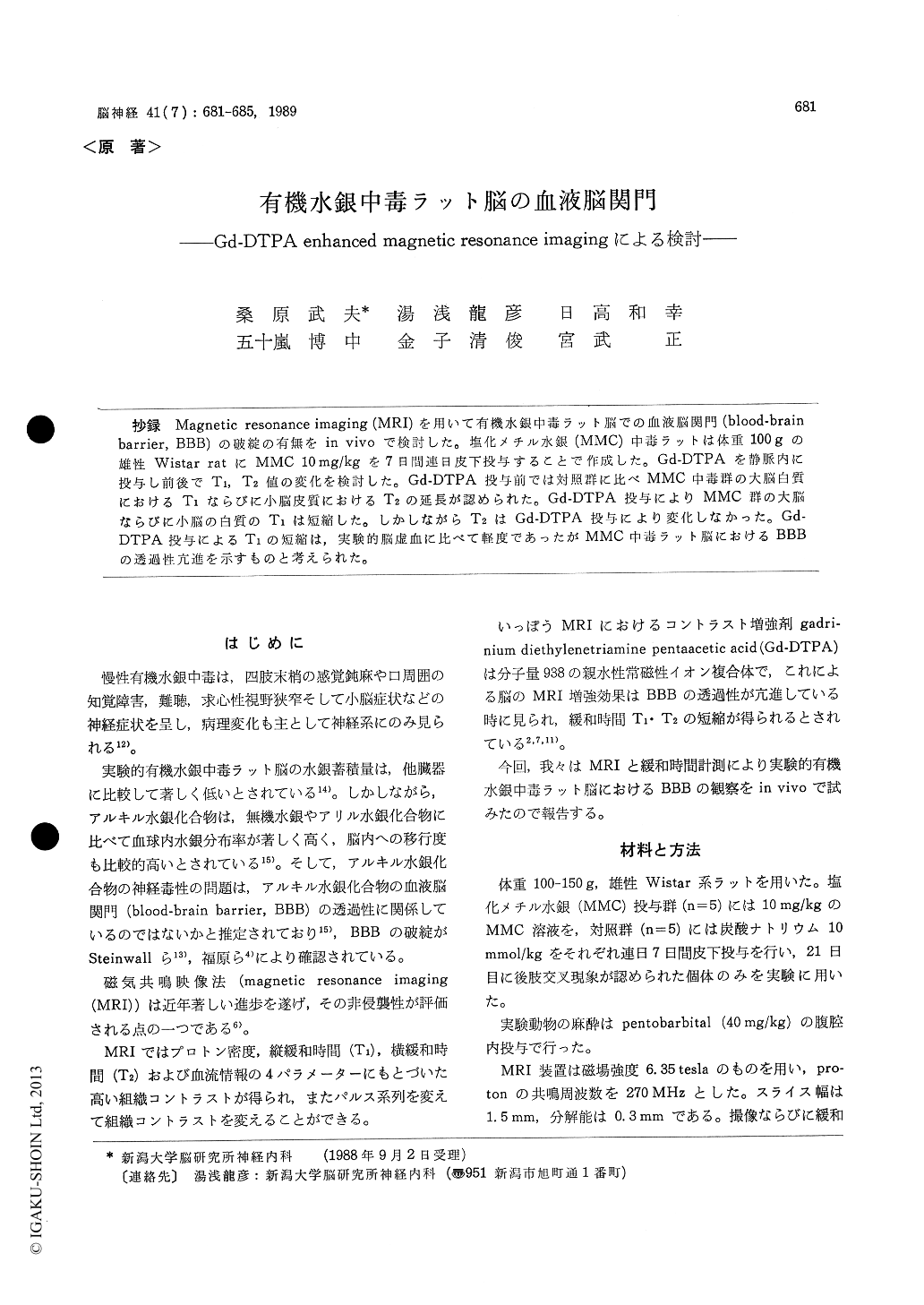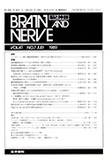Japanese
English
- 有料閲覧
- Abstract 文献概要
- 1ページ目 Look Inside
抄録 Magnetic resonance imaging (MRI)を用いて有機水銀中毒ラット脳での血液脳関門(blood-brainbarrier, BBB)の破綻の有無をin vivoで検討した。塩化メチル水銀(MMC)中毒ラットは体重100gの雄性Wistar ratにMMC 10mg/kgを7日間連日皮下投与することで作成した。Gd-DTPAを静脈内に投与し前後でT1, T2値の変化を検討した。Gd-DTPA投与前では対照群に比べMMC中毒群の大脳白質におけるT1ならびに小脳皮質におけるT2の延長が認められた。Gd-DTPA投与によりMMC群の大脳ならびに小脳の白質のT1は短縮した。しかしながらT2はGd-DTPA投与により変化しなかった。Gd-DTPA投与によるT1の短縮は,実験的脳虚血に比べて軽度であったがMMC中毒ラット脳におけるBBBの透過性亢進を示すものと考えられた。
Permeability of the blood-brain barrier (BBB) of methymercury chrolide (MMC) intoxicated rat brain was studied in vivo by gadrinium diethyl-enetriamine pentaacetic acid (Gd-DTPA) enhanced magnetic resonance imging (MRI), measuring the longitudinal relaxation time (T1) and the transverserelaxation time (T2).
MMC intoxicated rat brain showed the prolong-ed T1 in the cerebral white matter and prolonged T2 in the cerebellar cortex.
After Gd-DTPA administration, T1 of cerebral and cerebellar white matter shortened from 1. 647 to 1.344 sec., and 1.290 to 1. 223 sec. respectively. On the contrary, T2 showed no change after Gd-DTPA injection.
It was concluded that, although the shortening of T1 after Gd-DTPA enhancement was rather little when compaired with experimental brain ischemia, the shortening of the relaxation time of the MMC intoxicated rat brain was caused by the increased permeability of BBB.

Copyright © 1989, Igaku-Shoin Ltd. All rights reserved.


